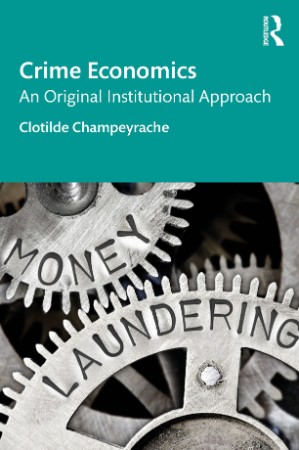- Joined
- Sep 4, 2023
- Messages
- 48,754
- Reaction score
- 2
- Points
- 38

pdf, epub | 9.56 MB | English| Isbn:9781040254226 | Author: Clotilde Champeyrache | Year: 2025
Description:
Presenting an original institutional approach, this book makes the case for an empirically based crime economics that aims to guide the fight against crime within a logic of reasonable capitalism and the common good.
Historically, it was not until a seminal article by Gary Becker that mainstream economists showed any interest in the criminal economy. The new field of crime economics was, in reality, little more than an extension of rational choice theory and cost-benefit analysis to a new subject. However, reducing crime to a single profit perspective has proven reductive: it ignores, for example, crime that affects public order (e.g., vandalism), and the individualistic approach does not seem to be very relevant when dealing with criminal organizations. Criminal phenomena therefore call for a renewal of the analysis. Inspired, in particular, by the work of Veblen and Commons, this book calls for a renewal of the analysis. It argues for an institutional focus on the integration of individuals into organizational and institutional contexts which provides a richer analysis of criminal choices and reintroduces collective and power-seeking motivations. The study of illegal markets uses an evolutionary approach to highlight their dynamic, cooperative, and interconnected dimensions. The question of criminal infiltration of the legal economy is assessed beyond the issue of money laundering to include territorial control strategies. Finally, a review of the liberal economic discourse and the values it embodies raises questions about the responsibility of the legal economy and its players in the expansion of the criminal economy, as well as the risk of a blurring of the boundary between legality and illegality.
This renewed global vision is useful both for those who study criminal issues (students and researchers in economics, criminology, law, sociology, and political science) and for practitioners.
Code:
https://ddownload.com/smwy06crmsci
Code:
https://rapidgator.net/file/d21ba33c849281e0625751bbb1e088db/
Code:
https://turbobit.net/e9ntbg2lebas.html


